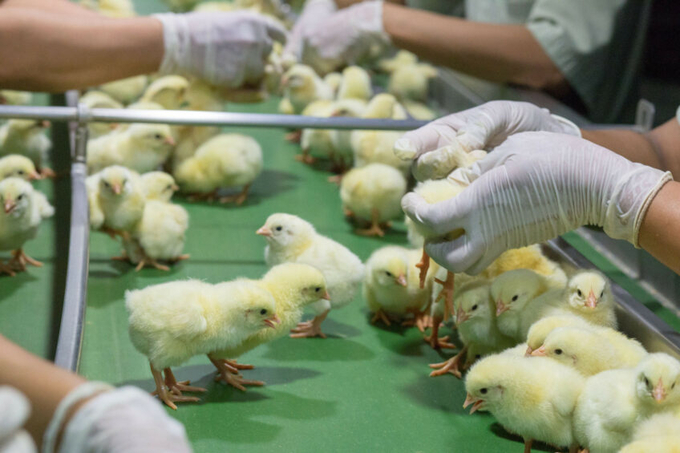December 10, 2025 | 15:43 GMT +7
December 10, 2025 | 15:43 GMT +7
Hotline: 0913.378.918
December 10, 2025 | 15:43 GMT +7
Hotline: 0913.378.918

There are reportedly very few employees who have gone to Russia to work in the agricultural sector. Photo: Canva
Workforce deficit has become the key challenge for the Russian economy in the past 2 years, opinion polls repeatedly indicate. A study by the Russian Central Bank in April 2024 showed that 70% of Russian firms suffered from a labour shortage.
According to a report from the Institute of Economics of the Russian Academy of Sciences, the country currently faces a labour shortage of 4.8 million, a situation that rapidly worsened in 2022 and 2023, impeding economic growth.
The poultry industry, where labour issues were evident before 2022, has been hit hard by the problem owing to a shrinking population in rural areas.
The labour market is tough, as the latest research by the country’s leading job platforms suggests that there are no regions in Russia with excess labour resources, a spokesperson for Cherkizovo, Russia’s largest broiler meat manufacturer, told local publication Agroinvestor.
“We, like the vast majority of Russian employers, are actively broadening our sources of recruiting personnel, including engaging with labour migrants,” the spokesperson said.
Cherkizovo tries to pull workers from traditional Russian workforce donors, such as Uzbekistan, Tajikistan, Kyrgyzstan, Kazakhstan, and Belarus, but also makes efforts to hire workers in India and Sri Lanka.
Fewer employees entering Russia
This year, there are very few employees who have come to Russia to work in the agricultural sector, Agroinvestor reported, citing local sources.
This is primarily associated with the Russian ruble’s depreciation, meaning that foreign workers start earning less. For instance, Irina Koziy, CEO of the Berry Union, also warned that several factors discourage workers from seeking job opportunities in Russia.
“Entry into Russia has become very complicated. There are cases when potential labour migrants are kept at the border for 12 hours and then sent back. After this, foreign citizens prefer to work in other countries. Workers from Central Asian countries who traditionally come to Russia increasingly choose to work in Turkey, Europe or China,” she admitted.
Increasing wages in an effort to fill gaps
This is not the first time workforce shortage in the Russian poultry industry have come to a fore. In September 2023, Russian newspaper Kommersant, citing several poultry farms, reported that several companies struggle to fill between 25% and 30% vacancies.
To address the labour shortage, Russian firms have nearly doubled monthly wages during the last year, but the problem persists, Agroinvestor reported.
(PW)

(VAN) Initiative launched in Cairo honors villages that are helping drive agrifood systems transformation.

(VAN) The European Union agreed Wednesday to phase out Russian natural gas imports by late 2027 as part of an effort to end the bloc’s decade-long dependency on Russian energy.

(VAN) Indonesia plans a US$1.2 billion investment in feed mills to boost poultry feed production.

(VAN) Japan's average retail rice price hit a new record high for the first time in three weeks, according to agriculture ministry data.

(VAN) The use of antibiotics in treating livestock in the UK has fallen, according to a new report released by the government’s Veterinary Medicines Directorate.

(VAN) Newly designated initiatives in Australia, Canada and South Africa represent science-based and inclusive examples of ecosystem restoration.

(VAN) Rice-based food has been selected as Japan's 'Dish of the Year' for 2025, reflecting public interest in the stable supply of the country's staple food amid a recent rice shortage.